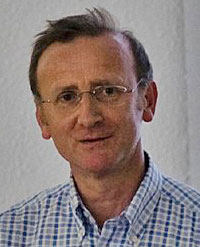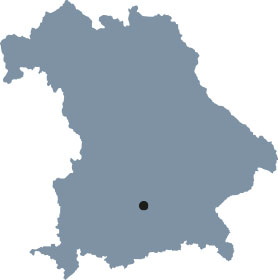Neuro-Cognitive Psychology
Neuro-Cognitive Psychology is an interdisciplinary research and training field that approaches basic issues of cognitive psychology (e.g., how does memory work?) not only using methods and concepts of experimental psychology, but also those of neurosciences. The focus of the Elite Graduate Program “Neuro-Cognitive Psychology” is on this integrative approach towards a neuroscientifically-oriented experimental psychology.
| Degree | Master of Science |
| Duration of study | Four semesters |
| Place of study | Munich |
| Admission requirements | Bachelor of Science |
| Language of instruction | English |
| Head | Prof. Dr. Simone Schütz-Bosbach |
| Coordinator | Lisa Beckmann Contact the coordinator |
| Further information | Website Neuro-Cognitive Psychology |
Excellent training in neuro-cognitive psychology
The Elite Graduate Program “Neuro-Cognitive Psychology” provides a state-of-the-art training in the contents/concepts and methodological approaches of experimental psychology and cognitive neurosciences. In doing so, the Elite Graduate Program “Neuro-Cognitive Psychology” offers excellent training in key qualifications as well as guidance towards post-graduate/ doctoral studies in Munich (e.g., GSN-LMU) or national or international universities/ research institutions. About 95% of the NCP students embark on a PhD career.
The Elite Graduate Program “Neuro-Cognitive Psychology” recruits students from around the world. An excellent student-staff ratio guarantees intensive individualized supervision. Each year, only about 15 national and international students are admitted to NCP; some 50% of the students come from abroad (countries of origin include Canada, China, Finland, India, USA, etc.). The NCP program is, by design, an interdisciplinary study program, with course offerings from the brain research-oriented sub-disciplines of psychology (including Neuro-/Biology) as well as from medicine and computing sciences.
A core feature of NCP is its research orientation: it is intended to equip students with the conceptual knowledge and methodological skills for a career in basic and applied science at university/research institutions or in industry. Of particular importance in this context is a thorough grounding in neuroscientific methodology.
To this end, NCP offers methodological training in general experimental design, behavioral techniques (mental chronometry and psychophysics), the recording and analysis of brain-imaging (EEG and fMRI) data, and the mathematical/(neuro-) computational modelling of large data sets. The emphasis is on hands-on research experience, realized, e.g., by students undertaking two laboratory internships during the breaks between lecture periods.


Our study program is designed to provide a highly selected group of inter-/national students with an advanced, research-oriented education in this rapidly expanding field at the intersection between experimental psychology and cognitive neurosciences.
Prof. Dr. Hermann J. Müller
The philosophy behind these laboratory projects is that students can benefit the most by working alongside a team of scientists in third-party-funded research (e.g., projects funded by the German Research Foundation/DFG).
In the second, advanced stage of the NCP course, students are provided the opportunity to extend and deepen their knowledge in basic-science and applied-research areas of specialization, such as “neuroimaging” or “neuroengineering”.


